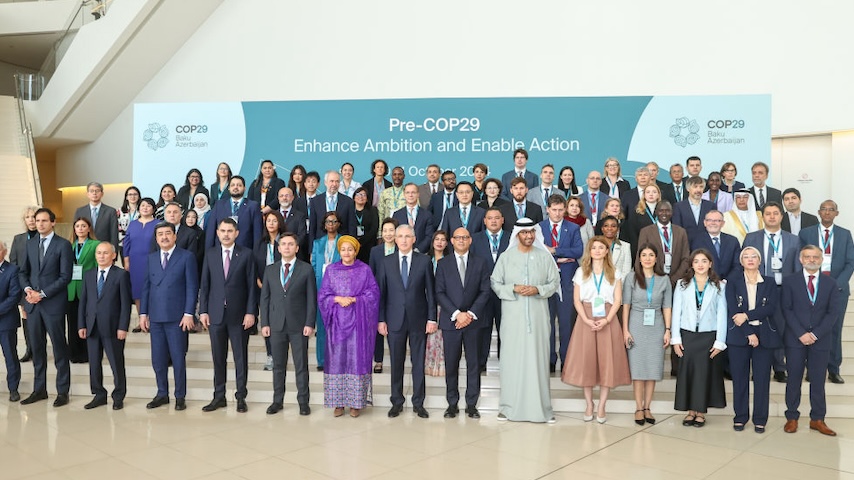What if COP29 Just Fails?
Photo by Aziz Karimov/Getty Images
The primary goal for the upcoming United Nations climate conference known as COP29 is to set a new finance benchmark, a number theoretically well above the existing $100 billion per year pledge of aid from rich countries to poor. As countries continue the run-up to the meeting, which starts November 11 in Baku, Azerbaijan, it seems increasingly plausible that such an agreement will simply fail to materialize.
“It’s not an easy issue when you come down to discussing the financial future and … multilateral cooperation is not exactly the flavor of the month at the moment,” Irish environment minister Eamon Ryan told Politico this week, as European Union ministers met in Luxembourg to hash out their negotiating stance. “There’s a real risk we might not get agreement.”
That possibility stems from the simple math of need versus availability. The actual price tag for climate change in the developing world, both to adapt to its ravages and build out clean energy infrastructure to avoid compounding the problem further, is almost certainly in the trillions of dollars per year; the likelihood that the developed world will simply hand out that kind of cash is slim.
-

-

-

-

-

-

-

-

-

-

-

-

-

-

-

-

-

-

-

-

-

-

-

-

-

-

-

-

-

-

-

-

-

-

-

-

-

-

-

-

-

-

-

-

-

-

-

-

-

-

-

-

-

-

-

-

-

-

-

-

-

-

-

-

-

-

-

-

-

-

-

-

-

-

-

-

-

-

-

-

-

-

-

-

-

-

-

-

-

-

-

-

-

-

-

-

-

-

-

-

-

-

-

-

-

-

-

-












































































































